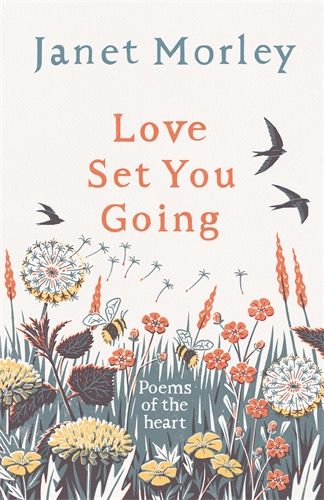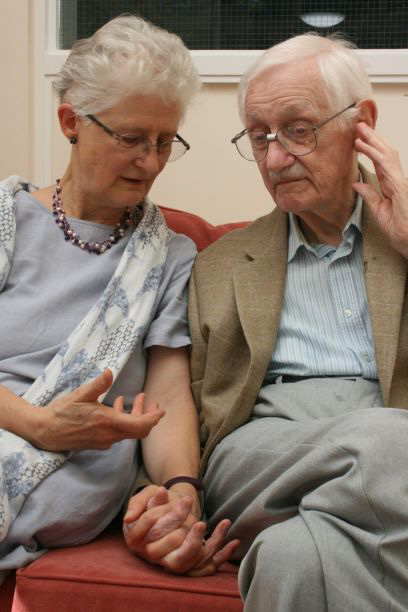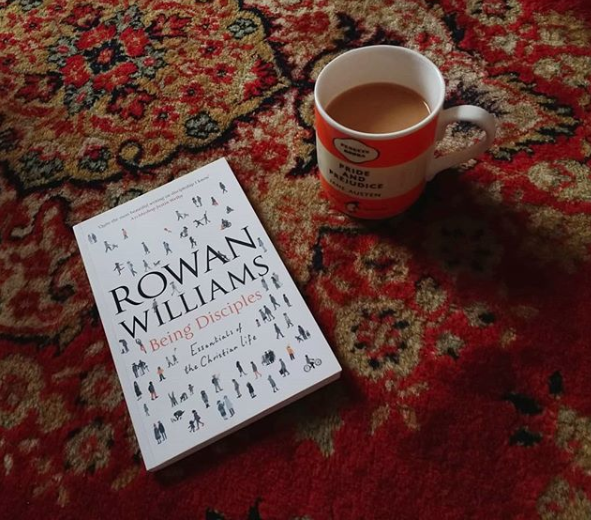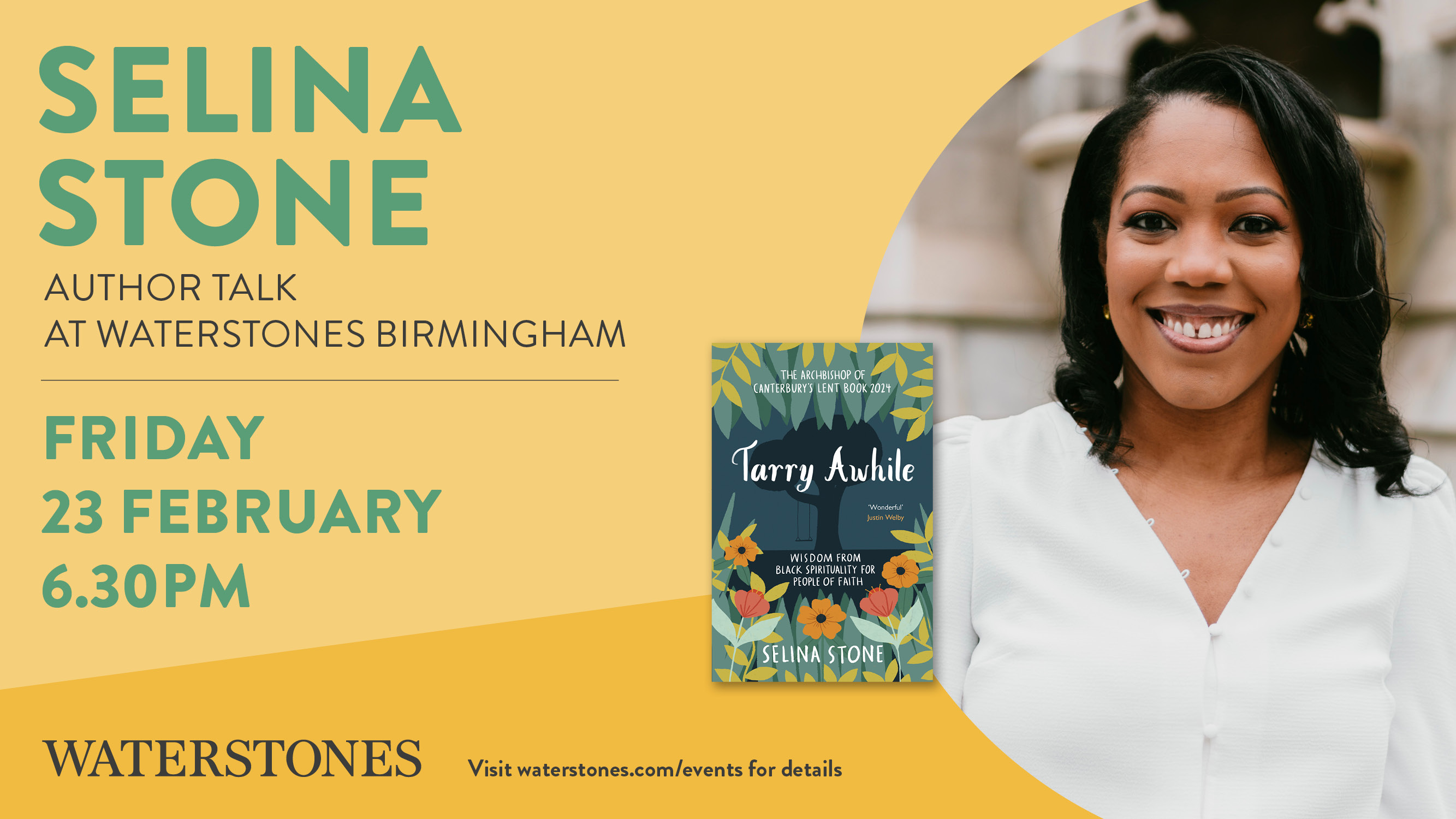We use cookies to make your experience better. To comply with the new e-Privacy directive, we need to ask for your consent to set the cookies. Learn more.
Our Lady of Vladimir
Ahead of Mothering Sunday we're sharing an extract from Love Set You Going by Janet Morley. In this extract the poem Our Lady of Vladimir by Rowan Williams is featured alongside a reflection by Janet.
Our Lady of Vladimir
Climbs the child, confident,
up over breast, arm, shoulder;
while she, alarmed by his bold thrust
into her face, and the encircling hand,
looks out imploring fearfully
and, O, she cries, from her immeasurable eyes,
O how he clings, see how
he smothers every pore, like the soft
shining mistletoe to my black bark,
she says, I cannot breathe, my eyes
are aching so.
The child has overlaid us in our beds,
we cannot close our eyes,
his weight sits firmly,
fits over heart and lungs,
and choked we turn away
into the window of immeasurable dark
to shake off the insistent pushing warmth;
O how he cleaves, no peace
tonight my lady in your bower,
you, like us, restless with bruised eyes
and waking to
a shining cry on the black bark of sleep.
Rowan Williams
This remarkable poem is based on one of the most famous religious pictures of the Virgin and Child, the twelfth-century Byzantine icon called Our Lady of Vladimir. It is of very fine quality, and has been copied many times. As the mother of Jesus, Mary is known as theotokos or ‘birth-giver of God’. The background is of beaten gold, the child wears a gown of gold thread, and Mary wears a black veil edged with gold braiding, the darkness of her clothes matching that of her eyes, which gaze out at the viewer. The child’s eyes are fixed on his mother, and he is energetically snuggling up, pushing his cheek against Mary’s, and wrapping his arm around her neck. It is an icon that is called an icon of tenderness, or loving-kindness.
But it is somewhat disturbing rather than comforting or sentimental, and the poet here captures the unsettling nature of the image. The poem starts right in with the child’s action in pressing against his mother, one might almost say invading her space: ‘Climbs the child, confident,/ up over breast, arm, shoulder’. The alliterated hard ‘c’s emphasize the child’s insistence. As a religious image it is surprising, but of course this is exactly what real babies do, as soon as they develop the strength to stand up firmly in their mother’s lap, and grab her chin, hair or clothes. The needy and determined love of a small child who still needs to be carried demands total attention and recognizes no personal boundaries. This is why parents look so exhausted and even burdened during the first year of a child’s life, even as they experience adoration for a person who has turned their lives upside down. It is at one level delightful to care for a baby who loves to fit so snugly and perpetually to your body. It is also completely understandable that you sometimes feel you want your body back.
So this Mary, rather than presenting simply a holy serenity, appears to be longing for a break from her burden of love, he clings so closely. She has the hollow-eyed look of many an insomniac parent. The poet even has her describe the child as like a parasite – as if he is ‘shining mistletoe to my black bark’. And yet this is an image of the Christ child, an image of the incarnate God. Rowan Williams has written elsewhere about this icon, in his book Ponder These Things, explaining how an ordinary child’s invasive, eager love is an appropriate reflection of God’s love for us. God’s love here is that of an eager and rather boisterous child, scrambling up on his mother’s lap, seizing handfuls of her clothing and nuzzling his face against hers, with that extraordinary hunger for sheer physical closeness that children will show with loving parents . . . This is a child who cannot bear to be separated from his mother.
As an image of God, it is bold and shameless, and Williams points out that dealing with the burden of such love might well leave Mary looking overwhelmed and fearful. For as Williams remarks, ‘To be the object of any intense and passionate human love when we do not know how to respond, or do not know whether we can respond, is always pretty fright- ening and sobering.’
For the second stanza takes the image of invasion even further: ‘The child has overlaid us in our beds.’ This is a reversal of the age-old fear that parents have that they might accidentally overlay and smother their child during sleep; here it is we, the parents, who fear for our capacity to breathe, we feel so smothered and choked by his attention. Though the poet is drawing on what seem like the endless sleepless nights of new parents, I think the problem here has firmly become the Christ child. It is God himself whose ‘insistent pushing warmth’ we attempt to shake off, only to discover that the alternative is a ‘window of immeasurable dark’ (the same word that described Mary’s pained eyes in the first stanza).
And so we are presented with a surprising and not wholly comfortable image of what it might be like to be loved by God and not to be able to resist. It is very like having a baby, without having a clue what demands that person will make on your love, your resilience, your boundaries, your energy, and the pattern of your days for ever after. As Williams puts it, just like a baby, ‘God wills not to be separated from us, not to be shut out from any corner of our being.’
 Life offers, and asks of us, many different kinds of love, and poets have reflected on this truth with insight and acute observation. As Janet Morley explores love ‘up and down the generations’, ‘grown up love’ and love between ‘God and the human heart’, she reveals what our hearts eventually discern – love has its seasons and ambiguities, its certainties and passions. Love is never simple at all.
Life offers, and asks of us, many different kinds of love, and poets have reflected on this truth with insight and acute observation. As Janet Morley explores love ‘up and down the generations’, ‘grown up love’ and love between ‘God and the human heart’, she reveals what our hearts eventually discern – love has its seasons and ambiguities, its certainties and passions. Love is never simple at all.
Buy now >>















